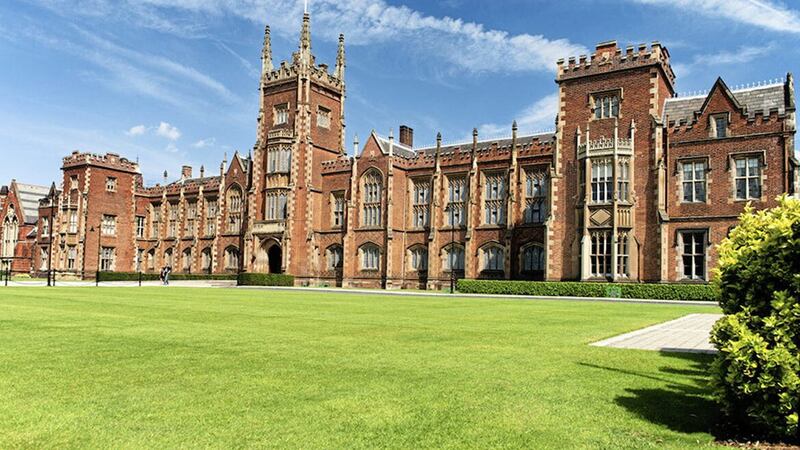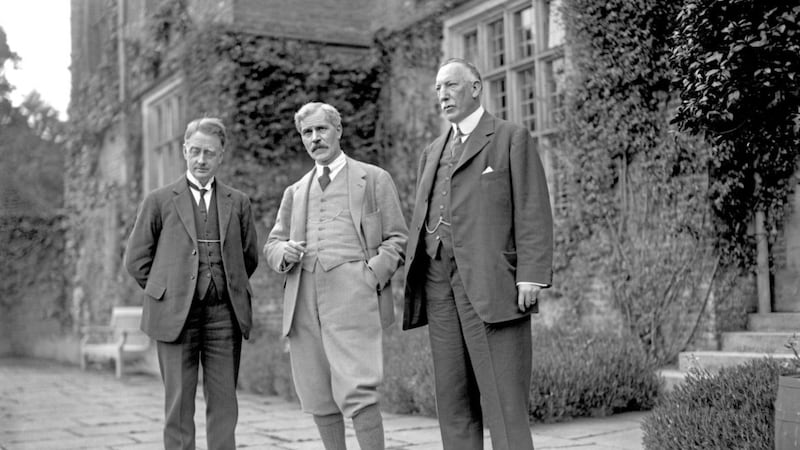It is commonly suggested that the Irish are prisoners of history. The theory is that allegiances to flags and constitutional causes have shaped modern Ireland.
While that idea may have had some validity when the border was established 100 years ago, the creation of two separate states, with their differing emphasis on social and economic policy, has fashioned contrasting political attitudes since then.
The industrially developed north in 1921 is now surpassed by the economically rampant south. To a large extent, this has resulted from the south’s radically different higher education provision.
Welcome to two tier-Ireland.
To illustrate what has happened, let’s go back to 1963. In Belfast, Lord Brookeborough (educated at Winchester College) retired as prime minister, having said that he "wouldn't have a Roman Catholic about his own place”.
He was succeeded by Terence O’Neill (educated at Eton) who said: “If you treat Roman Catholics with due consideration and kindness, they will live like Protestants.” (Isn’t an English education wonderful?)
Meanwhile in Dublin that year, Patrick (later President) Hillery, was planning regional colleges of technology, which, as Garret FitzGerald told me, were the foundation for Ireland’s economic growth.
In 1968 O’Neill implemented the British government’s decision to expand higher education, by applying Stormont’s policy of restricting investment to east of the Bann. He built Ulster University literally on the river’s east bank at Coleraine, rather than in Derry.
By 1970, new regional colleges were opened in Athlone, Carlow, Dundalk, Sligo and Waterford. Up here we were beginning our sectarian war. Later, another nine colleges were opened in the south, bringing the total to 14. In the north we began counting casualties, not colleges.
When our Great Sectarian War ended, the Good Friday Agreement made no mention of education. (The First Dáil in 1919 did the same. It had no minister of education.)
In the past three years, the regional colleges have merged to form five technological universities. They educate almost 100,000 students, offering research and degrees to doctoral level in a vast range of subjects from engineering to optometry.
They have campuses in every city and almost every regional town. The Atlantic Technological University, for example, has campuses in Letterkenny (population 19,000), Killybegs (1,200), two in Sligo (70,000), Letterfrack (192 - yes, 192), Castlebar (12,000), Mountbellew (800) and Galway (83,000).
If there were an equivalent system in the north, we would have up to 10 technological university campuses here. We could produce a degree-based, world class workforce educated locally.
There is a university for every 400,000 citizens in the south. In the north, the figure is almost one per million. Unlike the south, we pre-determine university entrance at the age of 11 through academic selection. (Naturally, we have different selection tests for Protestants and Catholics.)
The tests check which children can remember things such as what an acute angle is. (Catholic acute angles are different from Protestant acute angles, hence the need for separate tests.)
The sad thing is that by the time today’s 11-year-olds are 18, there will be very few university places for them. Our two universities will each need an extra 5,000 places for the projected increase in the number of 18-year-olds. However, both are already struggling for cash, leaving them relying heavily on higher fees from overseas students.
Queen’s international student numbers rose by 20 per cent last year to 4,200. Ulster University's income from international students rose by 50 per cent. It now has 2,000 from overseas. While we educate those from abroad, we are selecting 11-year-olds for export to British universities.
No Stormont party has a policy on higher education. (Who needs education when you have flags?)
So while the people in the south are the products of recent history, those in the north are still its prisoners. If we want an economic future for our children, it is time to free the prisoners. We can only do that by ending the farce of a constitutionally-obsessed Stormont.









